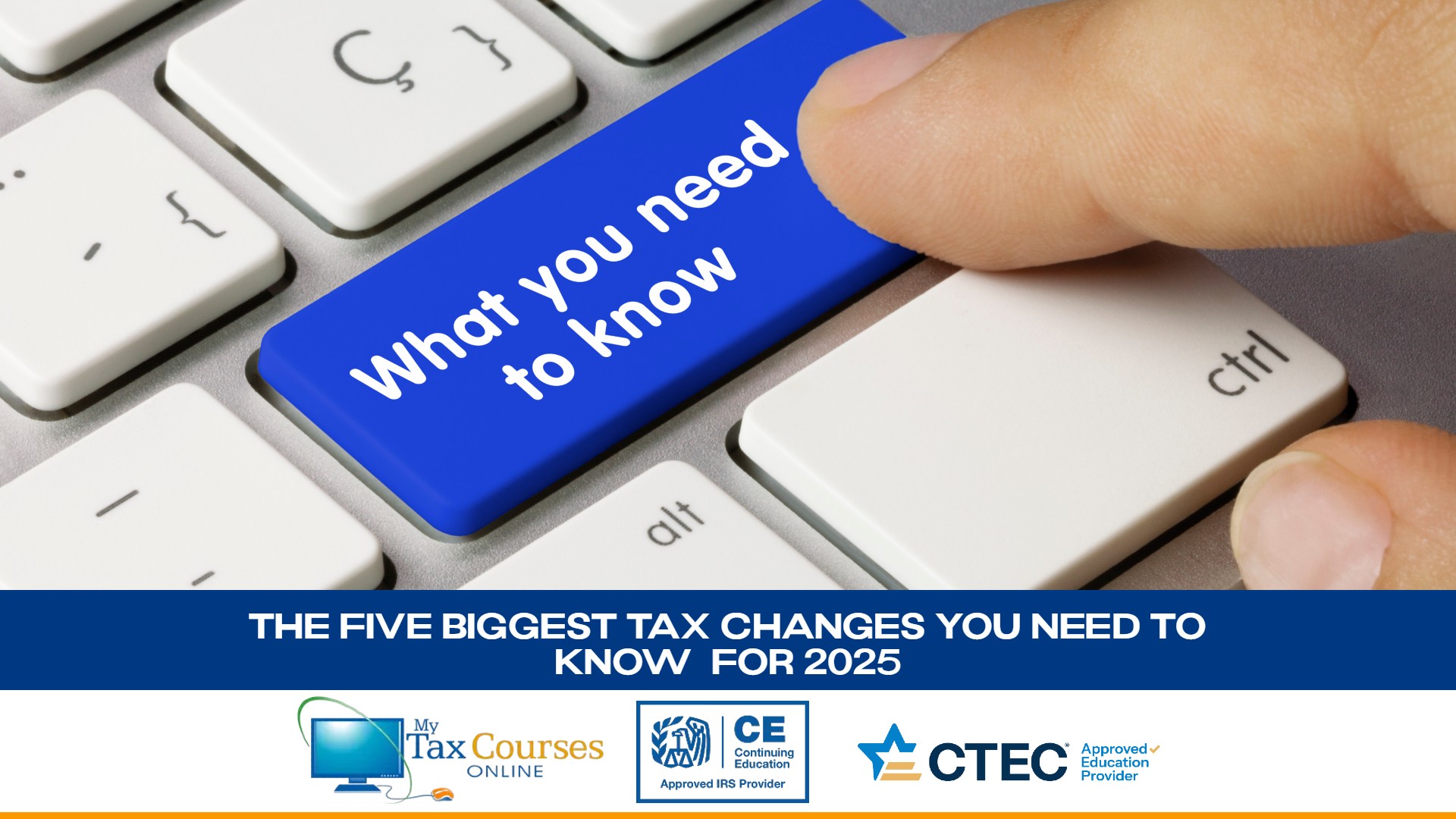The One Big Beautiful Bill Act (OBBBA) is reshaping individual tax filing starting in 2025. With permanent extensions, new deductions, and the elimination of certain credits, understanding these provisions is critical for anyone advising on tax planning. Here are five of the most important changes shaping the upcoming filing season.
1. Permanent Tax Brackets with Inflation Adjustments
The Tax Cuts and Jobs Act (TCJA) rates, ranging from 10% to 37%, were originally set to expire after 2025. OBBBA makes these brackets permanent and ties them to annual inflation adjustments, ensuring more predictable long-term tax planning.
2. Higher Standard Deduction & New Senior Deduction
Starting in 2025, the enhanced standard deduction amounts become permanent:
- $15,750 for single filers,
- $31,500 for married couples filing jointly,
- $23,625 for heads of households.
In addition, individuals age 65+ can claim a new senior deduction of up to $6,000 each ($12,000 for couples) between 2025–2028. This benefit phases out at higher income levels but provides a valuable planning tool for retirees.
3. Expanded SALT Deduction (Through 2029)
For tax years 2025–2029, the cap on state and local tax (SALT) deductions increases dramatically:
- Up to $40,000 for married couples filing jointly,
- $20,000 for those filing separately.
These higher limits are adjusted annually for inflation but subject to phaseouts at elevated income levels. After 2029, the cap reverts back to $10,000.
4. Updated Credits for Families
Several family-focused credits receive permanent or enhanced treatment:
- Child Tax Credit rises to $2,200 per child under 17 starting in 2025, with inflation indexing.
- The $500 credit for other dependents remains permanent.
- The adoption credit becomes partially refundable (up to $5,000) for the first time, increasing accessibility for families.
5. New Deductions and Energy Credit Terminations
OBBBA introduces innovative deductions while phasing out certain green energy incentives:
- New deductions: Up to $25,000 in tips and $12,500 in overtime pay (per filer), plus $10,000 in car loan interest on qualifying U.S.-assembled vehicles, available 2025–2028. Each has income-based phaseouts.
- Energy credits ending: Clean vehicle credits, residential clean energy credits, and home improvement credits are terminated on dates ranging from September 30, 2025 to December 31, 2025, with some provisions extending into 2026.
Final Word
The OBBBA locks in some of the most favorable provisions from recent tax law while introducing new deductions and eliminating several popular credits. For professionals who support accurate filings and forward-looking planning, staying current on these provisions is essential. The difference between understanding these changes and missing them could mean thousands of dollars in tax outcomes.
understanding these changes and missing them could mean thousands of dollars in tax outcomes.
Learn More
2025 OBBBA’s Impact on Individual Filers is a comprehensive, IRS-approved course from My Tax Courses Online led by tax expert Dr. Bart Basi. It offers a clear breakdown of how these changes affect different types of clients, from seniors and families to individuals with tips, overtime income, or estate planning needs.
➡️ Review and buy this course to gain the insights you need for the 2025 filing season.
Sources





